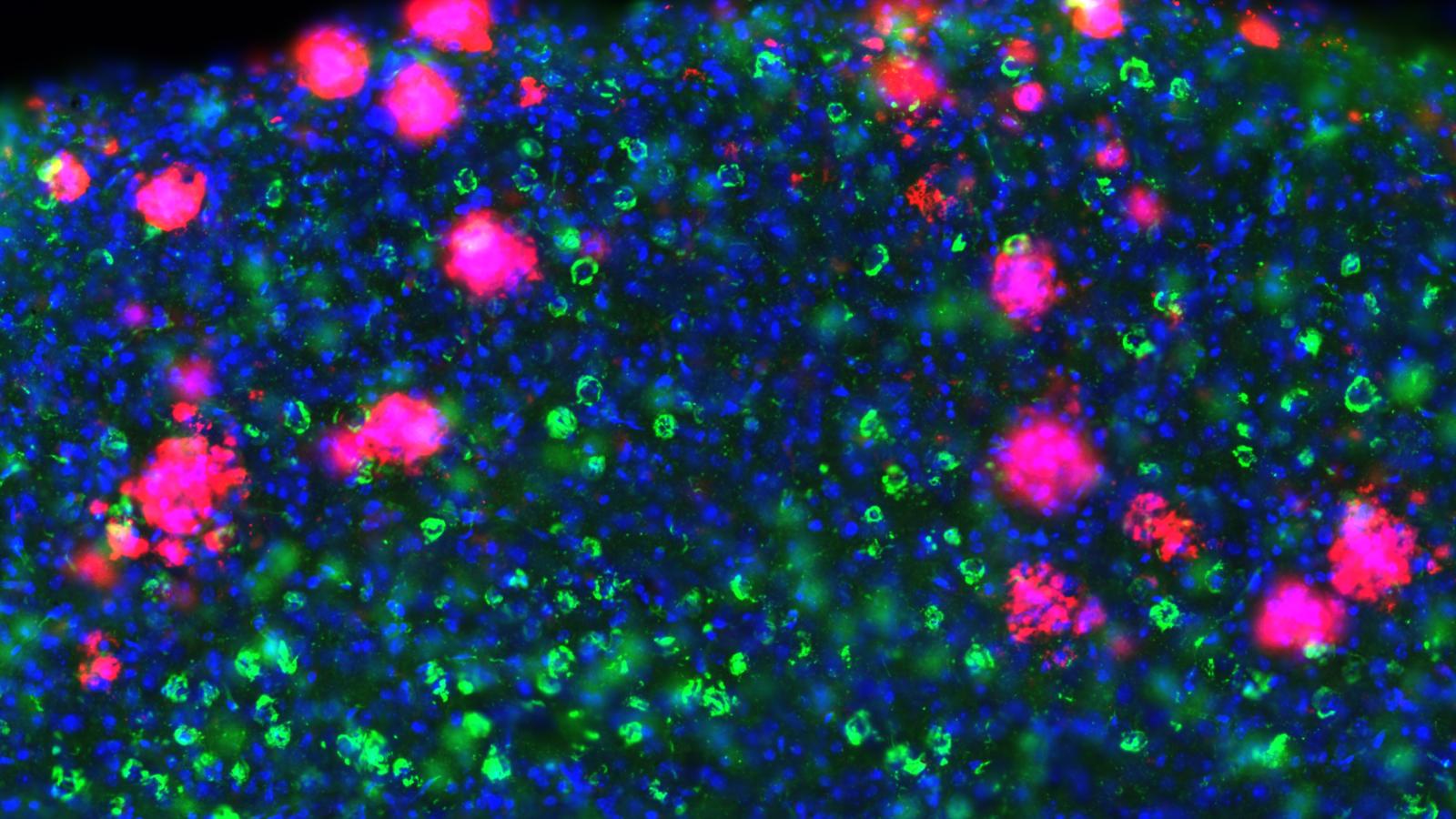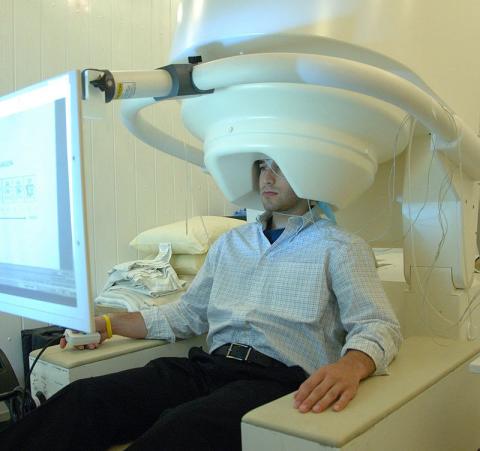Key details
Cells and circuits in Alzheimer’s disease and dementia
Alzheimer’s disease (AD) is a progressive neurodegenerative disease that affects millions of people around the world. The disease is neuropathologically characterised by widespread accumulation of abnormal protein aggregates in the brain, namely amyloid beta (Aβ) plaques and tau neurofibrillary tangles. There has been a great deal of research dedicated to elucidating the molecular and genetic underpinnings of AD, however, how pathological alterations in these microscale processes ultimately manifest as changes in cognition and behaviour remains unclear.
To address this critical research gap, the Busche Lab's research converges at the level of neuronal circuits, which act as mediators and modulators of microscopic and macroscopic ‘real-world’ processes, and can be interrogated and manipulated using sophisticated multi-modal techniques. Specifically, the laboratory examines how AD-related peptides impact on individual brain cells and the neuronal circuits in which they are embedded, leading to disease progression and alterations in brain function, cognition, and behaviour. His group is particularly interested in the pathological changes that take place at the earliest stages of AD, prior to the emergence of symptoms, since this may represent the best therapeutic window for effective intervention.
In order to meet that challenge, Marc and his team employ a suite of advanced in vivo and in vitro methods, including multiphoton microscopy, patch-clamp electrophysiology, Neuropixels multi-channel recordings, optogenetics, and wide-field calcium imaging in combination with molecular and cell biological techniques. This enables fine-scale functional mapping of brain circuits and their constituent brain cells to further understand the spatiotemporal effects of AD-related peptides in the brain.
Watch a webinar with Dr Busche!
Rethinking neurodegeneration: How do brain circuits fail in early Alzheimer's disease?
Join Dr Marc Aurel Busche (UK DRI at UCL)for a Rethinking Neurodegeneration' webinar from the UK DRI where he presents his recent publications showing that circuit disruption begins years before obvious symptoms appear, how amyloid-beta and tau proteins disrupt brain function at different stages, plus surprising insights into the protective roles of amyloid proteins in healthy brain circuits.
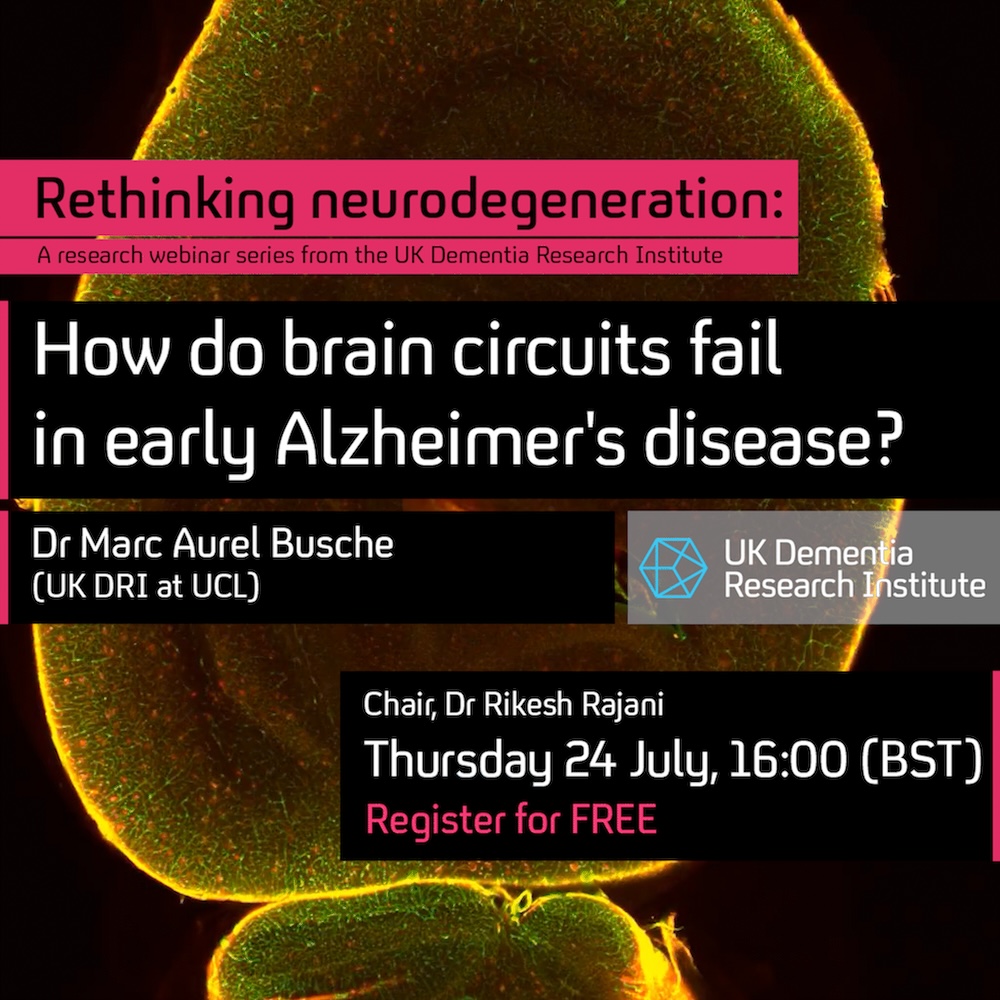
Latest news
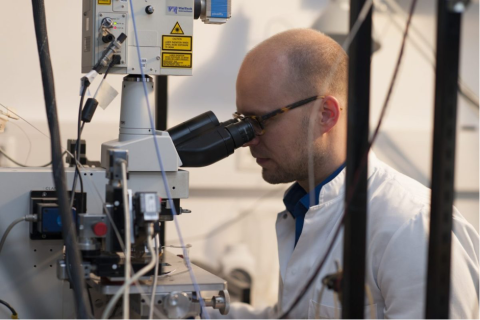
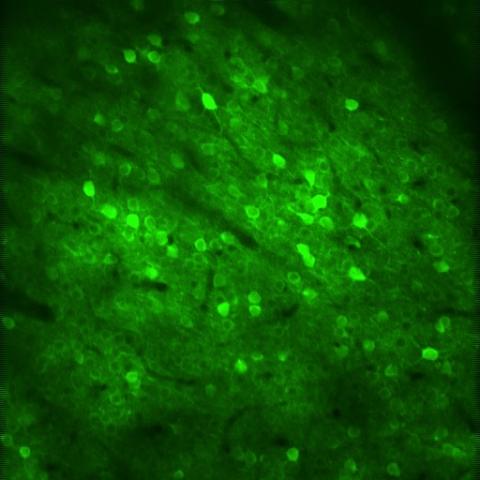
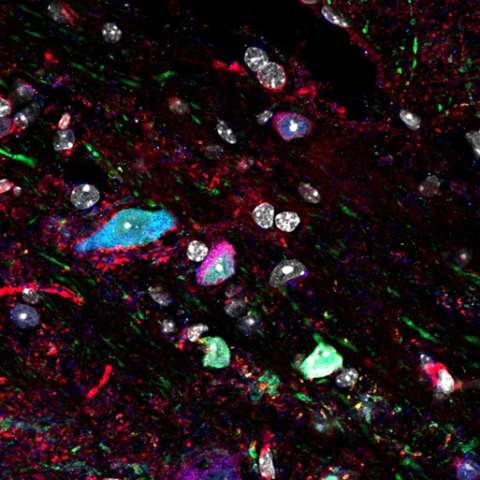
Dr Marc Aurel Busche
Dr Marc Aurel Busche MD, PhD is a Group Leader at the UK DRI at UCL. Find out more about his career and expertise on his profile page.

Research summary
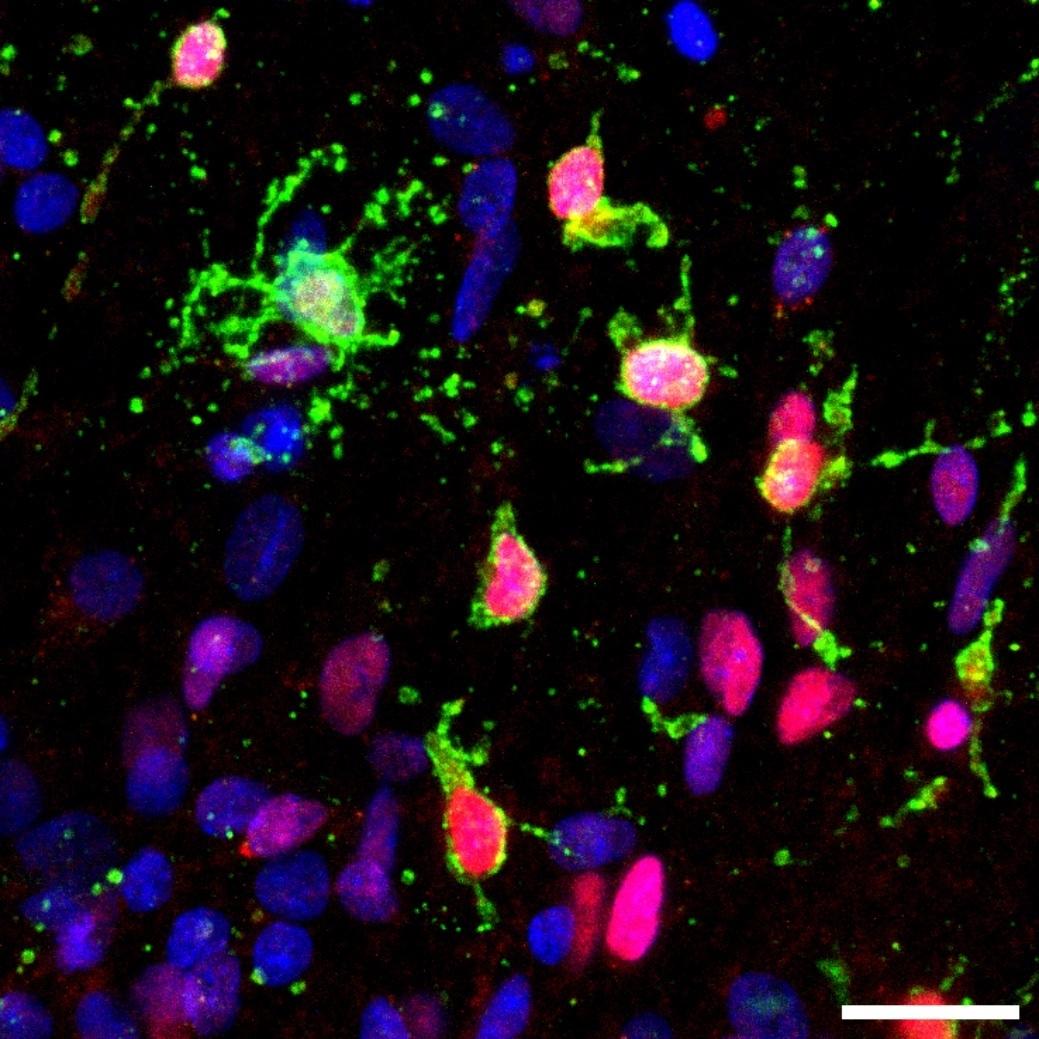
Human oligodendrocytes in a dish (green) produce the amyloid beta protein which is implicated in Alzheimer's. Credit: Rikesh Rajani, Busche Lab
Resolving the earliest neuronal circuit changes in Alzheimer's disease
There are currently no treatments for Alzheimer’s Disease (AD) that stop, reverse, or prevent disease progression, which is partly due to a critical lack of understanding of how early biochemical changes ultimately lead to cognitive decline and dementia.
Recent studies, including the ones done by the Busche Lab, have highlighted a critical role of neural circuit dysregulation in early AD, which emerges years before clinical symptoms and drives disease progression. The team's hypothesis suggests that early circuit dysfunction in AD can be detected and quantified using circuit-level techniques, including non-invasive imaging, and targeted for therapy. Its recent experimental and theoretical framework proposes that neural circuit dysfunction, mediated by AD-related proteins and other contributing factors, manifests in pre-symptomatic AD and escalates towards critical tipping points. These tipping points can serve as biomarkers and therapeutic windows, as discussed in recent reviews from the group.
To address remaining research gaps, the Busche Lab has established a cutting-edge technology platform integrating multi-modal and multi-scale techniques. This platform enables it to investigate key questions using model systems, post-mortem tissue, and patient cohorts. The team will acquire and analyse large-scale in-vivo functional data, complemented by extensive in-vitro and ex-vivo read-outs, focusing on vulnerable brain circuits such as the cortical-hippocampal system. Advanced computational modelling will support theoretical analyses of brain activation and behaviour, and help to identify novel circuit-level therapeutic interventions.
Busche Lab's key aims include:
- To determine the interactions between AD-related pathological proteins, their impact on brain cells and circuits, and establish causal links between circuit dysregulation and cognitive decline.
- To determine the contributions of non-neuronal cell types and vasculature in early circuit impairment.
- To explore the relationship between environmental factors and AD progression.
In conclusion, the group's multidisciplinary, cross-species approach, combined with the exceptional resources available at the UK DRI, positions it uniquely to resolve the earliest neuronal circuit changes in AD. Its program aims to identify sensitive markers of disease and evaluate novel therapeutic interventions deliverable at the earliest disease stages, thereby maximising benefits to patients and society.
Major projects
Key publications
Vacancies
Lab members
- Dr Samuel S Harris (Postdoctoral Researcher)
- Dr Robert Ellingford (Postdoctoral Researcher)
- Dr James Rowland (Postdoctoral Researcher)
- Daniel Goodwin (Postdoctoral Researcher)
- Qichen Cao (Postdoctoral Researcher)
- David Graykowski (Research Assistant)
- Robert Kilzer (Visiting Research Student)
- Jana Zunkler (Visiting Research Student)
- Suraya Bond (PhD Student)
- Francesca Lam (PhD Student)
- Jonathon Harris (PhD Student)
- Steven Allsopp (PhD Student)
- Josef Bitzenhofer (Visiting Research Student)
Collaborators








Lab funders
Thank you to all those who support the Busche Lab!






